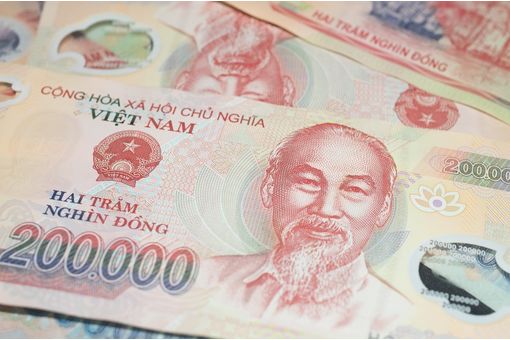Interviews
Cheap acrylic imports pose threat to original tartans
17 Oct '08
3 min read
Tartan, a pattern consisting of criss-crossed horizontal and vertical bands in multiple colours, can be associated with Scottish kilt.
Amongst woven textiles, tartan reigns supreme in its versatility. Its design is capable of displaying an aesthetic beauty, evoking heartfelt images and provide the wearer with strong 'genetic links' to the past.
Increasing appreciation for this material and globalization has brought with it, certain disadvantages. The advent of computerisation and widely available tartan design programmes, now empowers anyone to 'design' a tartan.
In an exclusive interview with Fibre2fashion, Mr Brian Wilton, Director, Scottish Tartan Authority (STA), discussed about the cheap imports of acrilyc tartans from Pakistan and told, “I believe they started filtering in small quantities as far back as 2001, but as the company responsible expanded, so too did the imports. The industry is not against cheap imports except when they deliberately mislead the public with labels on them that suggest they are made in Scotland.
“Such low quality and dangerous fabrics (acrylic will burst into flames if exposed to fire) were and are being sold to unsuspecting visitors who think they are typical of the Scottish product. They are also being exported from Scotland or Pakistan to North America and Europe and are widely available.”
Talking about Government's action to curb this infiltration down Mr Wilton lamented, “New European legislation gives greater powers to the Government to prevent misleading statements being made about products but this has not had much effect to date. There does not appear to be any other action that the Scottish government can take.”
Discussing about the repercussion of this infiltration of imitations, on Scottish business, the STA Director stressed, “Quite marked in many cases. Kilthire companies have noted a marked downturn in business since people would rather buy a cheap kilt than pay the same money or more, to rent a real one, made in Scotland.
“The copying also extends to sporrans and many small Scottish craft companies have suffered badly. An additional effect has been that innovation has been stifled with Scottish manufacturers being reluctant to introduce new products to the market because they will immediately be sent to Pakistan and inferior counterfeit copies will enter Scotland market within a few weeks.”
“The Scottish Government has no control over any laws connected to this matter. The labeling of imported goods is a task that is the province of the UK Government at Westminster and ultimately the European Union. We cannot rely on them to do what is best for Scotland, its heritage and the economic future of its tartan and Highland Dress industry.
It's a disgraceful state of affairs when we have to stand idly by and watch our heritage and traditional high quality products being dragged down to such lower level with the relevant authorities either unable or unwilling to implement existing legislation”, concluded Mr Brian Wilton worriedly.
Amongst woven textiles, tartan reigns supreme in its versatility. Its design is capable of displaying an aesthetic beauty, evoking heartfelt images and provide the wearer with strong 'genetic links' to the past.
Increasing appreciation for this material and globalization has brought with it, certain disadvantages. The advent of computerisation and widely available tartan design programmes, now empowers anyone to 'design' a tartan.
In an exclusive interview with Fibre2fashion, Mr Brian Wilton, Director, Scottish Tartan Authority (STA), discussed about the cheap imports of acrilyc tartans from Pakistan and told, “I believe they started filtering in small quantities as far back as 2001, but as the company responsible expanded, so too did the imports. The industry is not against cheap imports except when they deliberately mislead the public with labels on them that suggest they are made in Scotland.
“Such low quality and dangerous fabrics (acrylic will burst into flames if exposed to fire) were and are being sold to unsuspecting visitors who think they are typical of the Scottish product. They are also being exported from Scotland or Pakistan to North America and Europe and are widely available.”
Talking about Government's action to curb this infiltration down Mr Wilton lamented, “New European legislation gives greater powers to the Government to prevent misleading statements being made about products but this has not had much effect to date. There does not appear to be any other action that the Scottish government can take.”
Discussing about the repercussion of this infiltration of imitations, on Scottish business, the STA Director stressed, “Quite marked in many cases. Kilthire companies have noted a marked downturn in business since people would rather buy a cheap kilt than pay the same money or more, to rent a real one, made in Scotland.
“The copying also extends to sporrans and many small Scottish craft companies have suffered badly. An additional effect has been that innovation has been stifled with Scottish manufacturers being reluctant to introduce new products to the market because they will immediately be sent to Pakistan and inferior counterfeit copies will enter Scotland market within a few weeks.”
“The Scottish Government has no control over any laws connected to this matter. The labeling of imported goods is a task that is the province of the UK Government at Westminster and ultimately the European Union. We cannot rely on them to do what is best for Scotland, its heritage and the economic future of its tartan and Highland Dress industry.
It's a disgraceful state of affairs when we have to stand idly by and watch our heritage and traditional high quality products being dragged down to such lower level with the relevant authorities either unable or unwilling to implement existing legislation”, concluded Mr Brian Wilton worriedly.
Fibre2fashion News Desk - India
Popular News
Leave your Comments
Editor’s Pick
































-Ltd..jpg?tr=w-120,h-60,c-at_max,cm-pad_resize,bg-ffffff)





.jpg?tr=w-120,h-60,c-at_max,cm-pad_resize,bg-ffffff)
.jpg?tr=w-120,h-60,c-at_max,cm-pad_resize,bg-ffffff)






